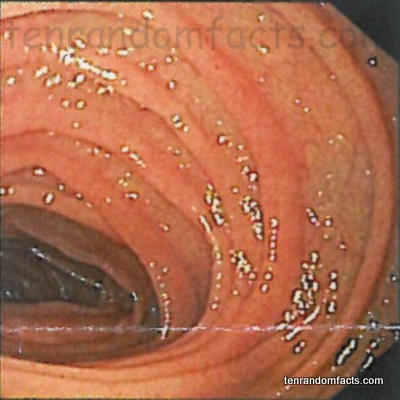Seel-ee-ak? Celiac or coeliac… they are the same thing.
- People with coeliac (pronounced seel-ee-ak) disease can’t consume gluten found in barley, rye and wheat, and most coeliacs also react to oats.
- One in five people affected by coeliac disease may not react to the gluten in oats.
- When those with coeliac disease consume gluten, it damages the small intestine (villi), so that nutrients aren’t absorbed properly.
- Coeliac disease is one of the only diseases that can’t be cured, but is easily treated via a gluten free diet.
- If coeliac disease is not treated, serious problems could occur like poor nutrition, infertility, cancer and diabetes.

Effects of Coeliac Disease (Inside Small Intestine)
- Symptoms of coeliac disease can include depression, behaviour, fatigue, weakness, easy bruising, skin rashes, bone and joint pains, and in children, failure to thrive, irritability and delayed growth, as well as other health problems. Sometimes no obvious symptoms are present.
- Those with coeliac disease, must be on a strict diet that has no gluten or any traces of gluten.
- Commonly, those with coeliac disease are lactose intolerant, although this often rectifies itself once a gluten free diet has commenced.
- Coeliac disease affects 1 in 100 Australians and 75% of people who have the disease do not know they have it.
- Coeliac disease vaccines are currently being developed in Melbourne, to help those affected by coeliac disease to consume gluten without damaging the small intestine.




